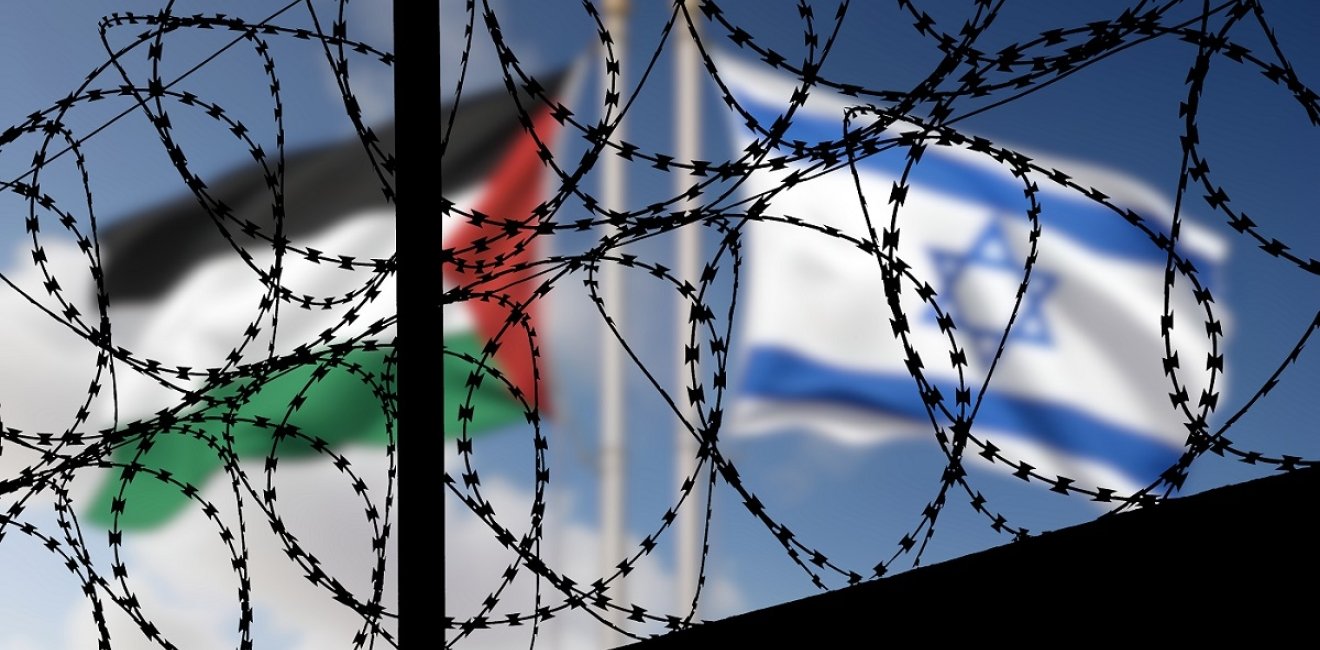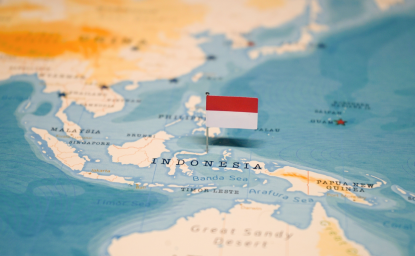After the horrific October 7 Hamas attacks in Israel, which killed 1,200 people, Israeli Prime Minister Benjamin Netanyahu rallied his nation by calling the enemy “Amalek,” the tribal enemies of the Hebrews in the Bible who repeatedly attacked them. “You must remember what Amalek has done to you, says our Holy Bible—we do remember.” In the Bible, the Hebrews effectively annihilated the Amalek tribe. God, through the Prophet Samuel, instructed Saul, the King of Israel, to “slay both man and woman, infant and suckling” (1 Samuel: 15:3).
While Israel’s defense minister Yoav Gallant said, “We are fighting human animals,” Sara Netanyahu, the wife of the prime minister, argued, “I don’t call them human animals because that would be insulting to animals.” The Israeli information minister, Galit Distel-Atbaryan, affirmed, “Erase Gaza from the face of the earth.” The war in Gaza has proceeded along these lines, with a death toll approaching the horrendous figure of 35,000 Palestinians, including an especially heartbreaking number of 13,000 children.
Senior Hamas officials spoke in a similar language of revenge. Ghazi Hamad, for example, announced that Hamas would carry out the October 7 attacks “a second, a third, a fourth” time until Israel is annihilated. “Israel is a country that has no place on our land,” he said, “We must remove that country.” The Hamas charter, which cites the fabricated Protocols of the Elders of Zion, also cites a similarly apocryphal saying of the Prophet of Islam concerning an apocalyptic prophecy of the end of days: “The Prophet, Allah bless him and grant him salvation, has said: ‘The Day of Judgement will not come about until Moslems fight the Jews (killing the Jews).’” Israel, the charter states, will be obliterated. Groups like Hamas, ISIS, and Al-Qaeda have been misusing and distorting the message of the Prophet of Islam to further their political ends.
None of this rhetoric, on the part of the leaders of Israel or Hamas, corresponds with the language of the “modern” state, security, and human rights.
None of this rhetoric, on the part of the leaders of Israel or Hamas, corresponds with the language of the “modern” state, security, and human rights that we commonly believe should characterize the domain of governance and international relations. Instead, this language has all the markings of tribalism interpreted through a religious lens. It depicts a clash between tribes in a fight to the death.
Re-tribalization
A tribe, traditionally understood, is a group of people sharing kinship and lineage ties that live in a particular geographic area with borders recognized by themselves and others. They also live by a code of idealized behavior stressing honor, hospitality, and a particular emphasis on revenge to redress challenges to honor.
In a recent article in the academic journal Anthropology Today, we argued that the world is undergoing a phase of “re-tribalization.” We see leaders appealing to a supposed primordial tribal past as containing the essence of the nation or group, which must be rediscovered, promoted, and fortified for the nation’s future. Re-tribalization functions as a way of solidifying group solidarity against other groups in defining “us” and “them.” This process occurs not only in places where identity is understood in the context of tribe, clan, and lineage but—contrary to the assumptions of “modernity”—also in the world's most powerful and economically “developed” countries.
The term “tribe,” it is important to note, is controversial due to its association with European colonialism. During that period, Europeans, believing themselves to be “civilized,” set their mission of “progress” against “tribes” they viewed as “barbaric.” After the Second World War, it was believed that the time of tribes had finished amid the march towards civic national citizenship, economic development, democracy, and globalization. And yet, “tribe” is not only used today by people living in societies where identity is still seen in terms of lineage, clan, and kinship but also by academics and commentators attempting to comprehend social polarization in “modern” societies like the US and Europe.
As we discussed in the book The Thistle and the Drone, tribal societies did not go quietly. They resisted, sometimes violently, the efforts of modern states determined to assimilate them. They wished to preserve their own identity, culture, religion, language, and customs. After 9/11, tribal regions, particularly in the Muslim world, were seen as potential nests of terrorism and targeted with the full force of modern weapons by the US and its allies. We examined 40 case studies of this process occurring worldwide, including Israel-Palestine.
Tribal groups refused to be “flattened” by globalization and the “War on Terror.” Groups emanating from Muslim tribal societies such as Al-Qaeda, the Taliban, ISIS, and Boko Haram went to extreme and often horrific lengths to fight against the combined forces of state assimilation, the War on Terror, and globalization. We found a direct correlation between action and reaction—the harder that central governments hit tribal groups with modern technology, the harder they retaliated with methods such as suicide bombings, couching their actions in the language of “revenge.”
But societies at the periphery were not the only ones being “re-tribalized”—the centers were too. Centralized states appealed to a tribal identity, which they expressed through nationalism. The foundations of European nationalist theory had directly associated nationalism with an unbroken lineage to tribes in the distant past. The German scholar Johann Gottfried Herder, known as the father of nationalism, gave a very detailed account of the importance of tribalism to the nation, its identity, and self-perception. Now, in opposition to globalization and a perceived threat posed by migration, nation-state leaders increasingly use similar language, for example, in the US and Hungary.
In India, the ruling Bharatiya Janata Party (BJP) party under Prime Minister Narendra Modi is named after a tribe, the Bharata Aryan Vedic tribe. Only those Indians with descent going back thousands of years to ancient “Hindu” India or Bharat are considered “real” Indians, and groups like Muslims who arrived “only” 1,000 years ago are seen as “invaders.”In Russia, President Vladimir Putin argued that Ukrainians must be incorporated into Russia based on their shared Slavic heritage going back to the Kievan Rus Empire of 1,000 years ago. And in China, President Xi Jinping stated that “our country” formed “from a nucleus coalesced from the Hua-Xia [the tribal ancestors of the ethnic Han] people under Emperor Yan and the Yellow Emperor.” As Xi told President Donald Trump while touring Beijing’s Forbidden City, “People like us can be traced back 5,000 years ago, black hair and yellow skin.”
“Re-tribalization” on the World Stage
In his assertion of a modern nation-state possessing an unbroken link back thousands of years into the tribal past, Netanyahu was echoing such leaders. As tribalism is associated with a geographic boundary, Netanyahu, after October 7, envisioned an Israeli state with “security control of all territory west of the Jordan.” Hamas has called for a “full and complete liberation of Palestine” within that area. Thus, the same territory was essentially claimed by both “tribes.”
The tribal dynamics of Israel-Palestine have fed into re-tribalization trends occurring elsewhere. There were already increasing societal divisions in many countries along lines of race, religion, and ethnicity, exacerbated by technological developments like social media and by political actors and state policies. Israel-Palestine further exacerbated these divisions as people have felt compelled to support one “tribe” over the other. We may see such allegiances that humans feel towards larger groups they identify with as “imagined communities,” to borrow a concept from the political scientist Benedict Anderson.
We strongly advocate that all forms of phobias and hatred that have surged in the past seven months, including anti-Semitism and Islamophobia, be identified and rejected.
Sometimes, this has led to people verbally or physically attacking someone perceived to be affiliated with the “other side” or the enemy. This helps explain the increasing incidents of hatred that have been recorded in countries like the US targeting Jews and Muslims. We strongly advocate that all forms of phobias and hatreds that have surged in the past seven months, including anti-Semitism and Islamophobia, be identified and rejected.
Transcending tribalism
What can be done to address this surge towards tribalism concerning Israel-Palestine? We have been heavily involved in improving relations between different communities for years. We have focused on building on what is common between people and drawing on the deep wells of wisdom and historical examples of reaching out to “the Other” in our diverse religious and cultural traditions. If we are experiencing a wave of “re-tribalization,” then perhaps re-discovering and promoting such connections may yield more results than exclusively appealing to modern “civic ideals” such as equality under the law.
Examining our great human religious and philosophical traditions at this time is also especially relevant because they often developed in a world of tribalism. People had to think seriously about how to get beyond tribalism and embrace the humanity we all share. That is why, for example, in the Islamic tradition, the Prophet of Islam said, “there is no Bedouinism in Islam.”
In his final address, the Prophet stated, “All mankind is from Adam and Eve—an Arab has no superiority over a non-Arab nor a non-Arab has any superiority over an Arab. Also, a white has no superiority over a black nor a black has any superiority over a white, except by piety and good action.” While there were still tribal conflicts during his lifetime, even with his own Quraysh tribe, the Prophet was unequivocal about non-Muslims, such as Jews and Christians, co-existing with Muslims. There are also historical examples like the “golden ages” of Judaism in Muslim states such as Umayyad Spain, where the Caliph of Cordoba, Abdur Rahman III, had a Jewish chief minister. Similarly, the most powerful Muslim ruler of his age, Saladin, had the famous Rabbi Maimonides as his physician.
In the Jewish tradition, the Five Books of Moses are adamant that non-Jews be treated with compassion and hospitality, thus living up to the tribal code of honor, because calamity could befall anyone. For example, “Thou shalt neither vex a stranger, nor oppress him: for ye were strangers in the land of Egypt” (Exodus 22: 21). In the Book of Ezekiel, God reveals to Ezekiel that the people of Israel will be severely punished for their sins, including mistreating non-Jews (for example, in Ezekiel 22: 7 and Ezekiel 22: 29).
Breaking the cycle
Over the past two decades, we have conducted ethnographic fieldwork in Muslim and Jewish communities worldwide. We have witnessed these values in evidence in countless ways as people live their traditions of care, compassion, and hospitality in reaching out to the “Other.” For example, in Sarajevo, Bosnia-Herzegovina, the head of the Jewish community, Ambassador Jakob Finci, said that anti-Semitism did not exist there among Muslims, and noted that Muslims protected Jews during the Second World War, and Jews protected Muslims in their synagogues during the wars in the 1990s. We visited places like Andalusia, Spain, and Thessaloniki, Greece, to research Jewish “golden ages” in which they lived alongside Muslim and Christian communities. This is not theory but living proof of our thesis.
It is essential that both sides in this conflict and their supporters around the world think deeply about how to promote coexistence. A tribal war of annihilation will only end in more suffering and death. We have seen the rhetoric on both sides expressing a desire to exterminate the other side. South Africa, for example, has used such quotes as evidence in its ICJ case accusing Israel of genocide.
As well-wishers who want the two peoples—both seeing themselves as nations entitled to a state—to live in harmony and security, we cannot and will not accept the current untenable and inhuman situation, particularly in Gaza. What is depressing is the apparent loss of hope in evidence everywhere and the sense of hurtling towards the brink. Amid the cycles of revenge, we should remember Mahatma Gandhi’s retort to such tribal customs: “An eye for an eye will leave the whole world blind.”
On purely humanitarian grounds, a release of the hostages and, on the other side, a stop to the bombing and killing in Gaza should be implemented as first steps to arriving at a lasting settlement.
On purely humanitarian grounds, a release of the hostages and, on the other side, a stop to the bombing and killing in Gaza should be implemented as first steps to arriving at a lasting settlement. There are many difficult days and difficult negotiations ahead.
And yet, we note that there are many constructive examples from these two great religious and cultural traditions, and indeed in others, which can at least provide a foundation to build. At their core, we find a very human sense of hope, healing, and forgiveness. Such steps can help contain and transcend tribalism in reaching out to the “Other” in a profound way—not only in the Middle East but across the world. Two millennia ago, Rabbi Hillel the Elder implored people to treat others as they wish to be treated and to love thy neighbor. We should all heed his words.
The views expressed in this piece are those of the author and do not express the official position of the Wilson Center.







